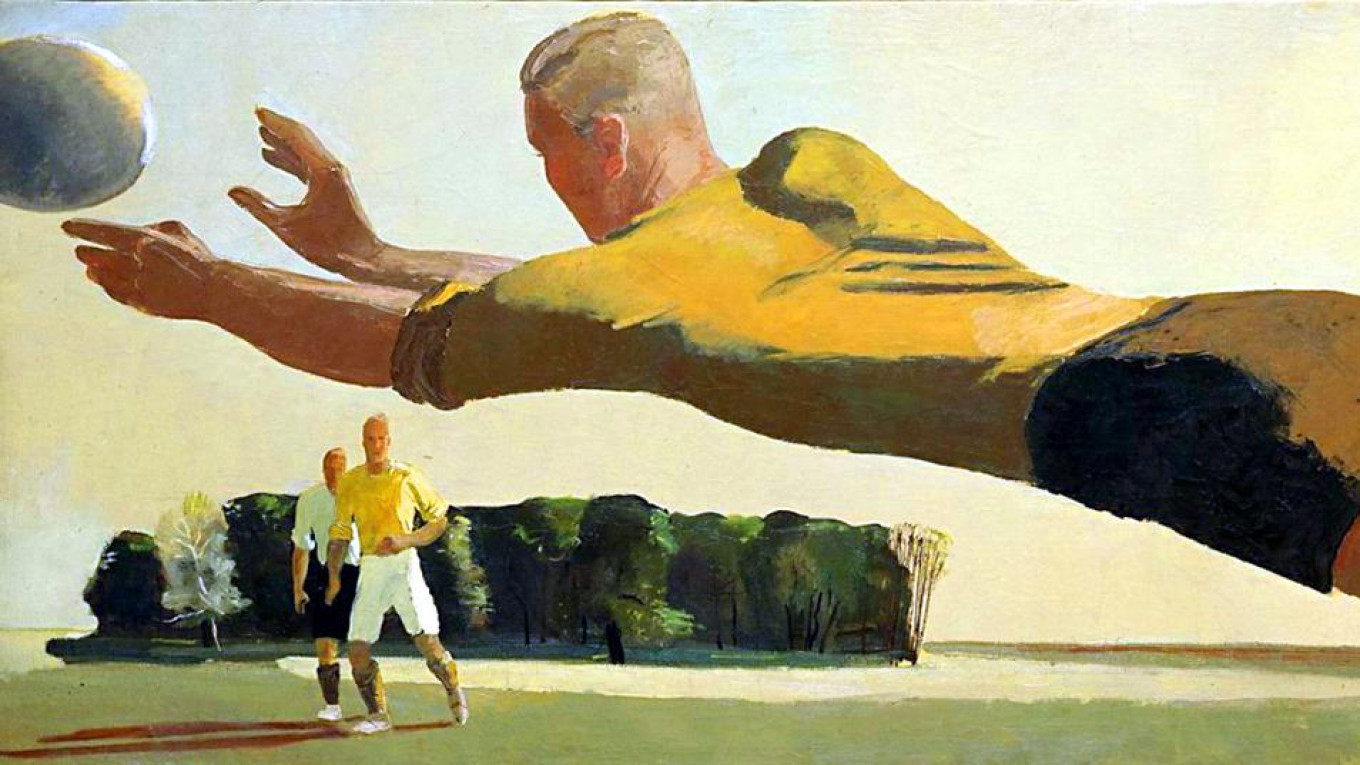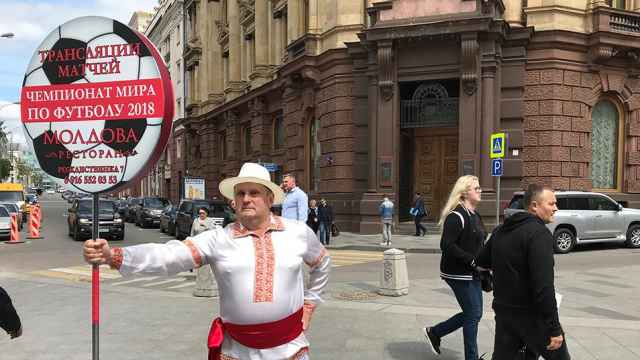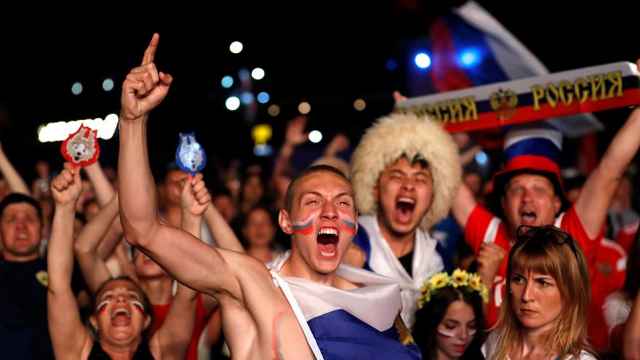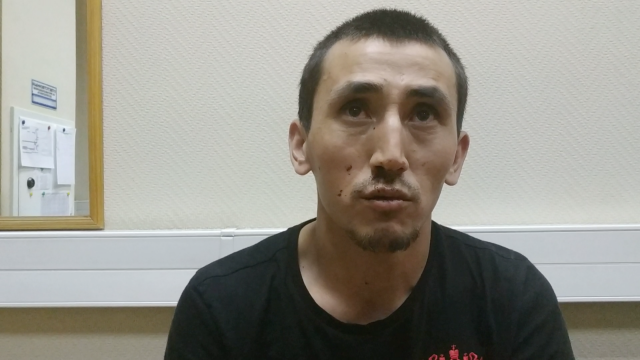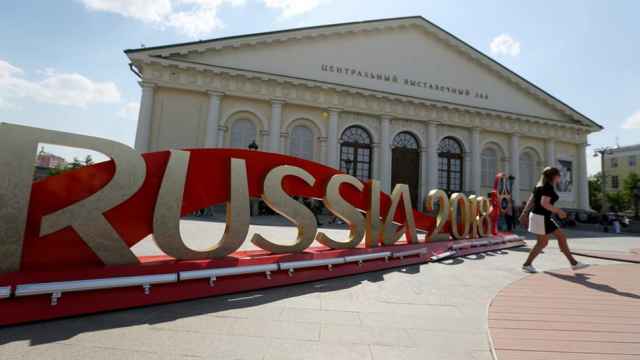Not Only Football
In Russia, sports only became the subject of the arts in the late 1920s and early 1930s — when sports for recreation became popular — but sports of all kinds quickly became a favorite theme of artists. The New Tretyakov Gallery has gathered some of the most interesting, dramatic, and beautiful paintings, drawings and sculptures of men, women and children playing at sports. They range from a touching depiction of a scruffy courtyard game of football to sculptures of skaters, cyclists, and pole vaulters in motion. This is a must for fans of all sports.
Open: Tues., Wed., 10 a.m to 6 p.m. Thurs., Fri., Sat., Sun., 10 a.m. to 9 p.m. Closed Monday
Tickets: 500 rubles Krymsky Val, 10 tretyakovgallery.ru/en
Anxiety on the Couch (Zittern auf dem Sofa)
Across the street from the New Tretyakov Gallery, tucked among the greenery of Gorky Park is the Garage Museum of Contemporary Art, one of the city’s oldest and best private museums dedicated to modern art. In honor of the World Cup, photographer and football fan Juergen Teller has shot a special series of photographs and videos about football, football players — past and present — and football fans, football games and football accouterments. Some photographers are humorous; a few may leave the viewers feeling uncomfortable. All are filled with an obsessive love for the game. Don’t miss it, but come without the kids.
Open: daily 11 a.m. to 10 p.m.
Tickets: 300 rubles
Krymsky Val , 9 garagemca.org
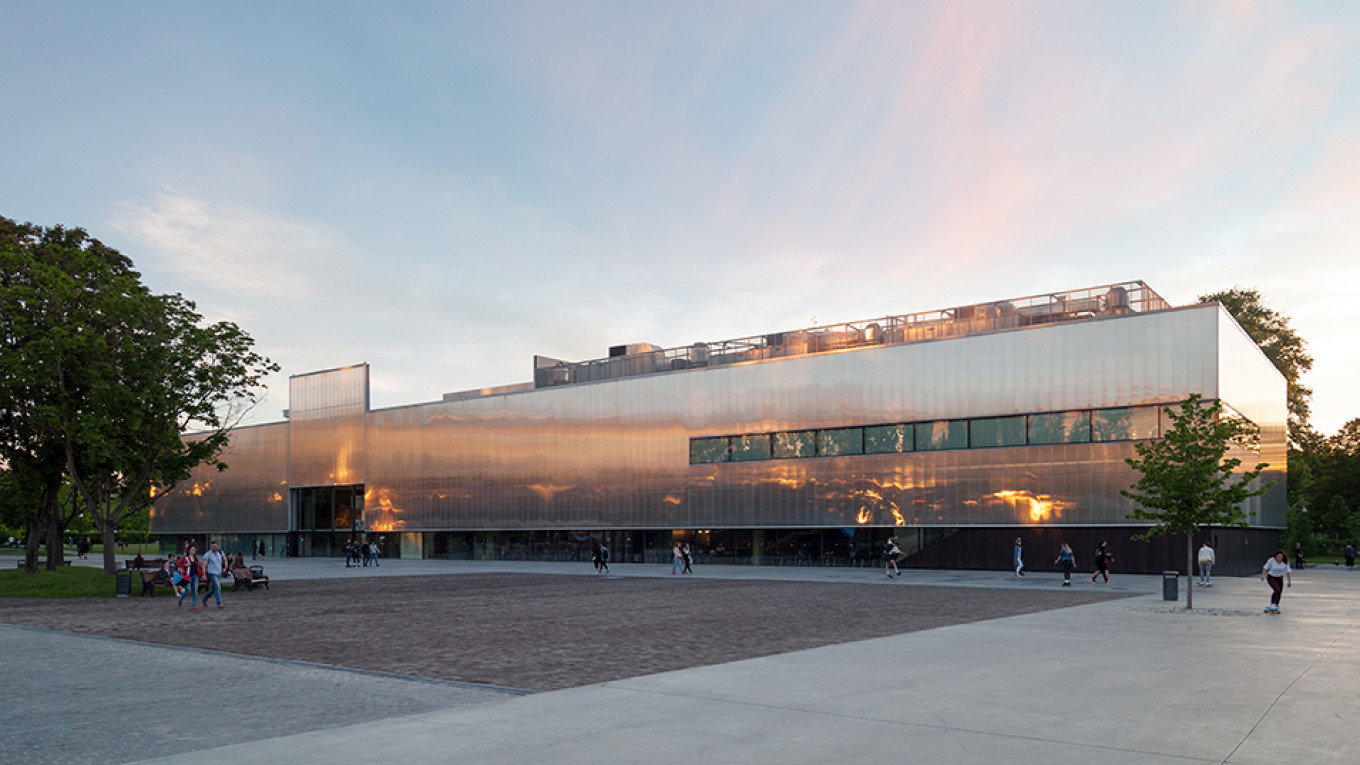
Avant-Garde Football
Although the Pushkin Museum of Fine Arts generally exhibits Western art, its Museum of Private Collections (currently closed for reconstruction) exhibits Soviet and Russian works gathered by private collectors. To celebrate the World Cup players and fans, the museum is displaying a small but magnificent show of football-related works by the avant-garde artists Alexander Rodchenko and Varvara Stepanova, from one of the private collections donated to the museum. You can see paintings, graphics and sketches done by this couple, including Stepanova’s sketches of constructivist uniforms.
Open: Tues., Wed., Sat., Sun., 11 a.m to 8 p.m. Thurs., Fri., 11 a.m. to 9 p.m. Closed Monday
Tickets: 400 rubles
Ulitsa Volkhonka, 12 arts-museum.ru
Stadiums Past and Present
The curators of the Schusev Museum of Architecture in Moscow are using the World Cup as an excellent reason to do an exhibit of the rich art and history of Soviet and Russian stadiums. The first half of the show is dedicated to sketches, drawings, and photographs of some of the country’s great Soviet stadiums that varied in style from slightly avant-garde to solidly classical. The show highlights some unusual stadiums, like a U-shaped one, and brings to life the excitement of the first major sporting events held in the country. The second half is about some of the world’s best stadiums and the Russian stadiums built or reconstructed for this year’s matches, illustrated with models, photographs and designs. In addition to guides in several languages, this show will include tactile copies of three-dimensional exhibits, guided tours in sign language and accompanying texts in Braille for people with visual impairments.
Open: Tues.,Thurs., 1 p.m. to 9 p.m. Wed., Fri., Sat., Sun., 11 a.m. to 8 p.m., Closed Monday
Tickets: 300 rubles
Ulitsa Vozdvizhenka 5/25 muar.ru/en
And Football, Too, Of Course!
The Museum of Moscow is the main historical museum of the city and always looking for innovative ways to bring the extraordinarily rich past of the Russian capital to museum-goers. To mark the World Cup the Museum has joined up with the LUCH gallery to bring paintings by three artists. The paintings by Denis Yegelsky, Kirill Kipyatkov, and Andrei Krisanov come from the representative, classical tradition, and for them sports are still, like in ancient times, the embodiment of humanism. Come see their work, and then spend some time in the permanent collection, where you can see Moscow and its people from the city’s beginnings in the 12th century until today. The exhibits are in Russian and English, and there is an excellent book and souvenir shop, café, and children’s center.
Open: Tues., Wed., Sat., Sun., 10 a.m. to 8 p.m. Thurs., 11 a.m. to 9 p.m. Closed Monday
Tickets: 200 rubles Zubovsky Bulvar, 2 mosmuseum.ru/en
History of the Sport
History of the Sport The Karelia Pavilion at VDNKh, the grand Soviet Museum of Economic Achievements in the north of the city, is hosting a big exhibition about football in Russia and the Soviet Union. It is divided into three sections: the history of pre-revolutionary and Soviet football, a hall of fame honoring the best players of all time, and the modern history of Russian football — and hooliganism. The exhibit tells this fascinating story through cinematography, fine arts, animation, literature, photography, graphics and computer games. You can see Soviet and Russian football in rare news photos; admire football badges, banners, and other fan and player attributes lent by collectors and sports clubs; listen to “the sound of the stadium” recorded in various stadiums and various years; and see photographs and examples of less well-known Russian footballers, like village and women’s teams. In one area you can play football on old Soviet slot machines and early computer games — and learn about virtual football promoted by the Russian Federation of Cyber Football. Basically, if you are curious about Russian football, this is your one stop shop for everything to do with the sport. There is an English-language map of the show and the exhibits are labeled and described in English.
Pavilion 67. Prospekt Mira, 119
A Message from The Moscow Times:
Dear readers,
We are facing unprecedented challenges. Russia's Prosecutor General's Office has designated The Moscow Times as an "undesirable" organization, criminalizing our work and putting our staff at risk of prosecution. This follows our earlier unjust labeling as a "foreign agent."
These actions are direct attempts to silence independent journalism in Russia. The authorities claim our work "discredits the decisions of the Russian leadership." We see things differently: we strive to provide accurate, unbiased reporting on Russia.
We, the journalists of The Moscow Times, refuse to be silenced. But to continue our work, we need your help.
Your support, no matter how small, makes a world of difference. If you can, please support us monthly starting from just $2. It's quick to set up, and every contribution makes a significant impact.
By supporting The Moscow Times, you're defending open, independent journalism in the face of repression. Thank you for standing with us.
Remind me later.


